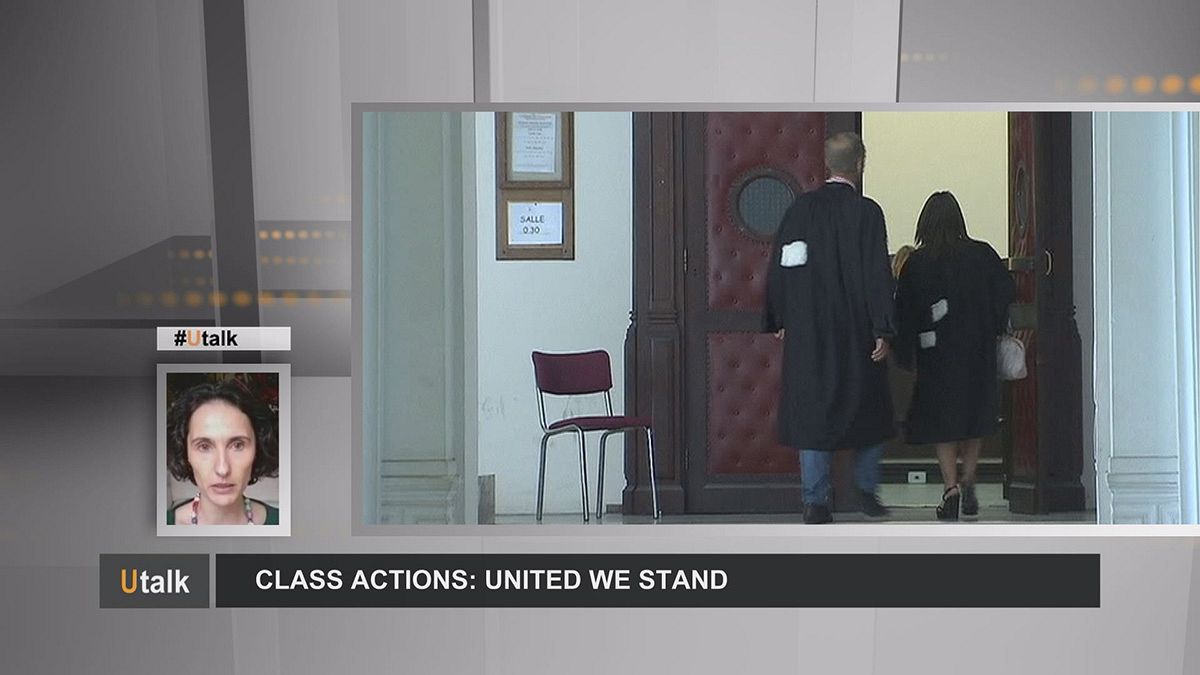Our question this time on Utalk is from Benoit in the French city of Lyon.
“France’s first ‘Class Action’ was launched at the start of October. This American trend of taking collective legal action is already happening in several European states. What is it exactly?” he asks.
The explanation comes from Anne-Lise Sibony, a Professeur of European law at Liège University in Belgium.
“A class action is a mechanism that allows several people to act together in a court of law. It is especially interesting when, as in France’s first case going through the courts now, all the plaintiffs are suing for minor damages.
“Though the damage suffered individually is small, collectively the damage can amount to several million euros. In such a case, if there is no mechanism allowing the bundling of several individual claims into a single court action, the trial may never take place.
“Procedures differ from one European country to another. (1) There are two main differences. The first one deals with the scope of the procedure. This scope can be very broad in some countries
and very narrow in others. For instance in Germany, there is a specific class action procedure dealing with claims from minority shareholders. In that case, you can not file a claim dealing with, let’s say, pollution.
“The second difference deals with the opt-in or the opt-out option chosen by lawmakers.
“Opt-in means that the claimant has to make it clear that he or she wants to join the class action group.
“Opt-out means that the court which is hearing the lawsuit will define on its own who is part of the class action. For instance, in the case of a phone company convicted of competition law violations, the court will say that all the clients of that company are automatically part of the group of the claimants unless they explicitly disagree.
“Having said that, a lot of things remain to be done, at both a national and EU level, for these procedures to be fully effective. For instance EU lawmakers must find a way to settle cross-border cases. And so far, the EU has appeared very shy on this issue.”
If you would also like to ask a question on Utalk, please click on the participate button.
(1) In most countries, you can file a class action in case of problems related to consumer rights, competition, antitrust law, etc. Some countries also include the environment, (for instance, you can sue an energy company after an oil spill), and health issues.


